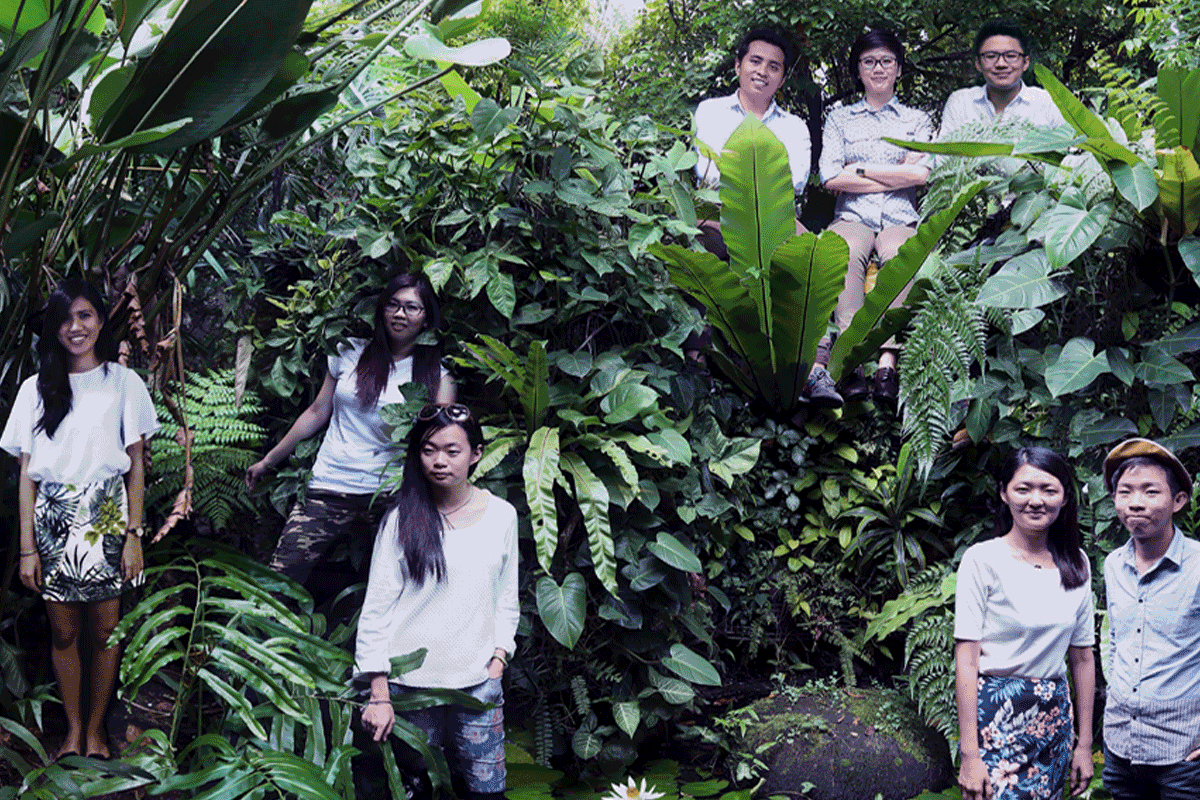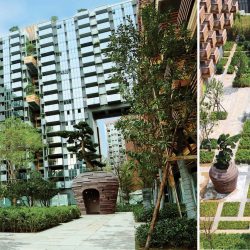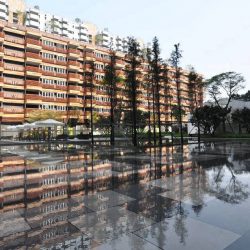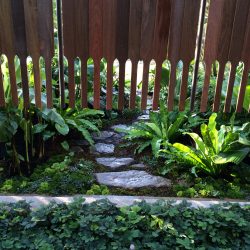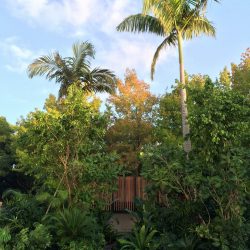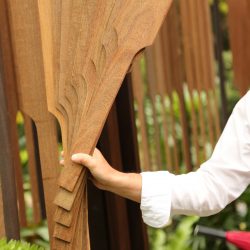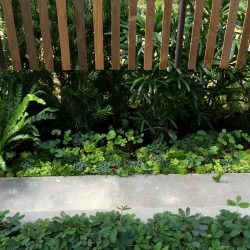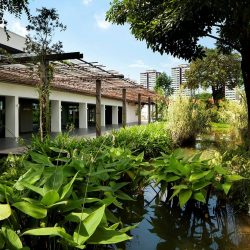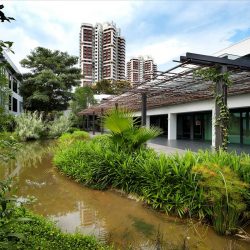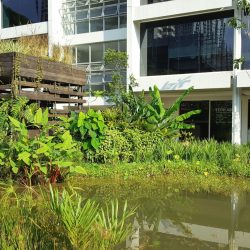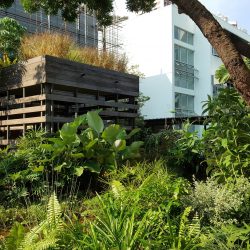IF LANDSCAPE DESIGN WERE SALADS, COMPREHENSION OF THE TROPICS WOULD BE SPRAYED ALL OVER THE WORKS OF THIS SINGAPORE-BASED STUDIO
Chang Huaiyan’s track record includes working with prominent tropical garden designers like Made Wijaya in Bali before returning to Singapore to pursue his studies in architecture at the National University of Singapore. He founded Salad Dressing in 2002 after receiving his master’s degree. From that beginning on until today, Salad Dressing has grown to become a widely known middle-sized design firm in Singapore that employs 22 staff of diverse nationalities, backgrounds and design interests.
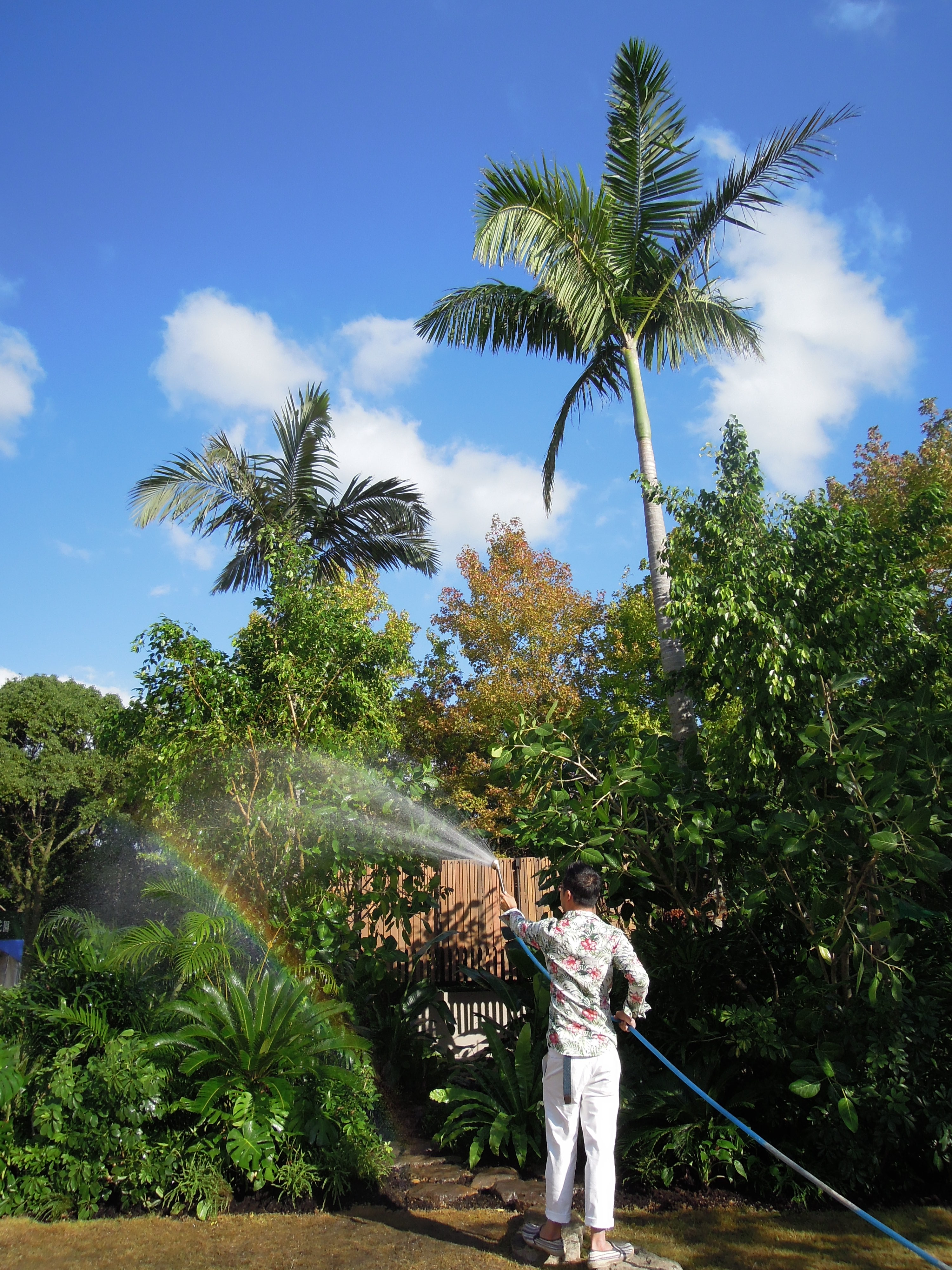
The Mimosa Shrine (2014) by Japanese Architect, Takuo Ueno, Image © Salad Dressing
The core idea of Salad Dressing’s landscape designs lie in the stimulation of immateriality in nature through the presence of hardscape elements. The initial stage of each project is always considered and materialized through the realization of surfaces, colors, time, scales and forms. Everything is conceived from the integrated backgrounds in architecture and garden design of the studio’s founder, Chang Huaiyan.
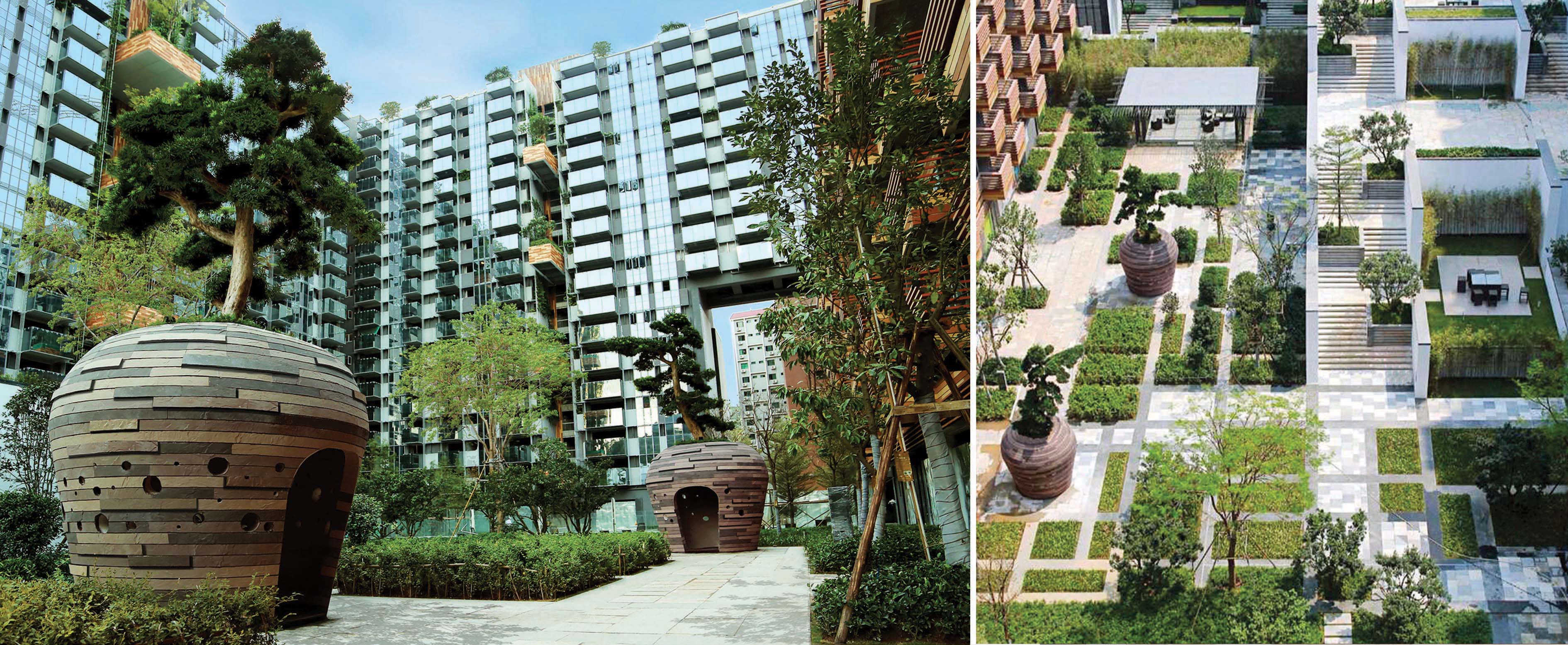
Vanke Feingjing (2014), a large-scale residential building landscape design in Guang Zhou, China. Image © Salad Dressing
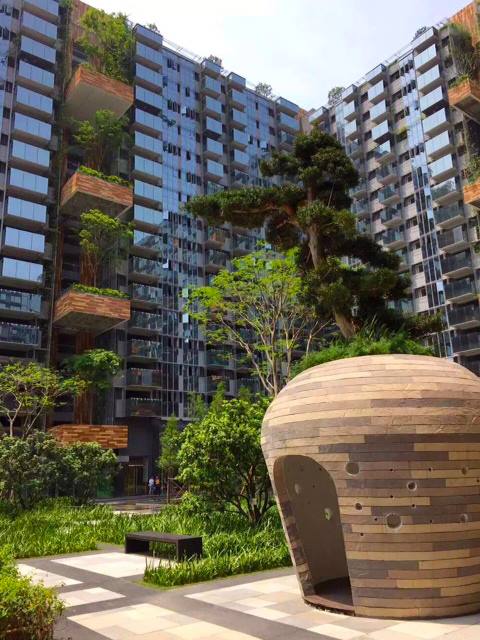
Vanke Feingjing (2014), a large-scale residential building landscape design in Guang Zhou, China. Image © Salad Dressing
What’s even more interesting is the creative use of rainforest plants as an element of a space or landscape to showcase the amazing legacy of the tropical region’s luscious nature. The studio’s impressive list of projects ranges from SG Enabling Village (2016) where the landscape is designed to be inclusive of users with diverse abilities. Without any excessiveness, rainforest elements and essences of nature are brought back as a part of the city’s fabric under the coexistence of the ecosystem. Mimosa Shrine (2014) at Nagasaki’s Flower Competition is the result of the studio’s collaboration with Singaporean musician, Chong Li-Chua in a creation that harmoniously orchestrates the movements of mimosa trees and the rhythm of drums and water drops. Standing as a part of the landscape is a pavilion with a wood curtain designed by Japanese architect Takuo Ueno that resonates sounds when touched by the wind. Everything, combined with the viewers’ curiosity and nostalgia, gives the final result of a space of meditative, contemplative ambience.
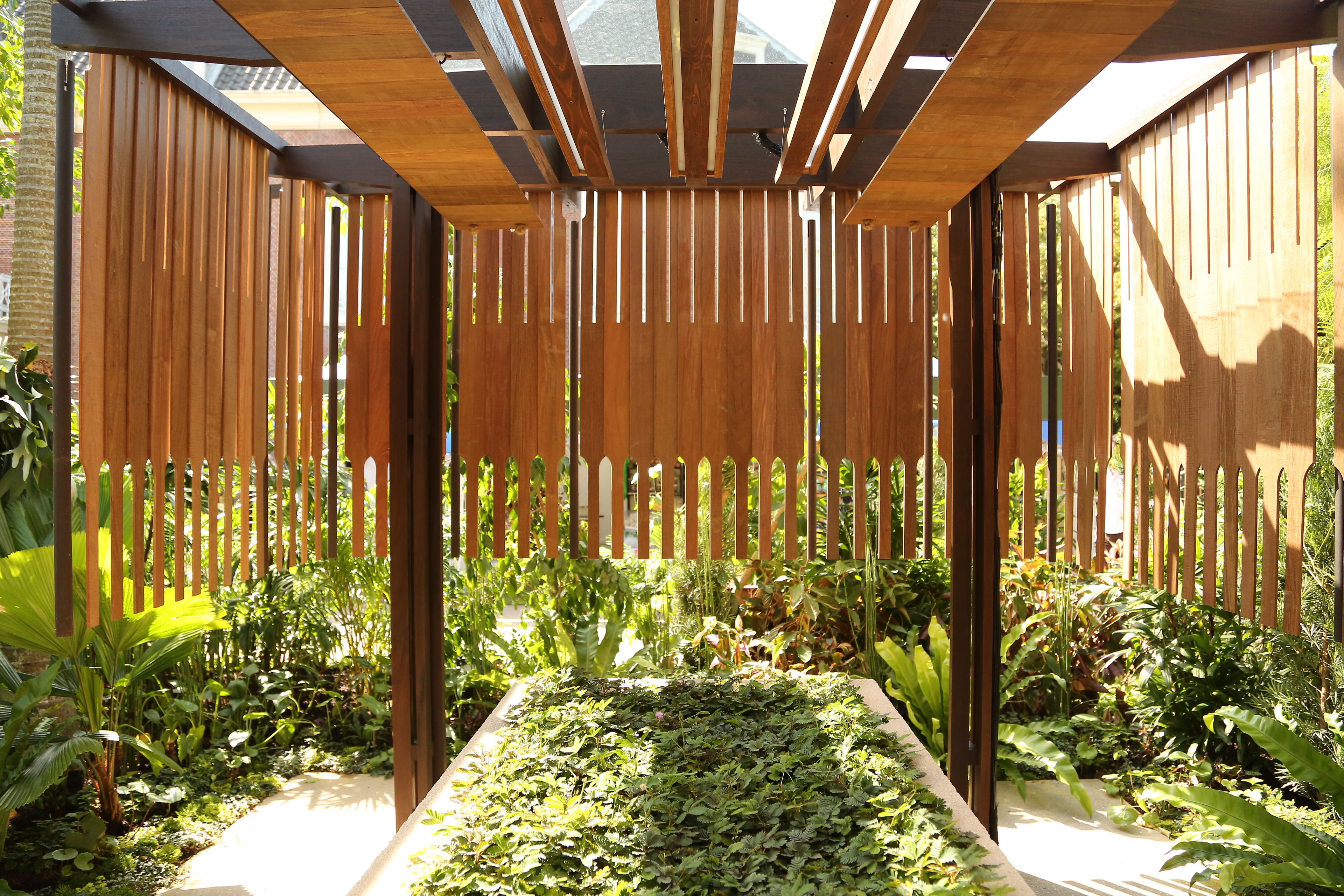
The Mimosa Shrine (2014) by Japanese Architect, Takuo Ueno, Image © Salad Dressing
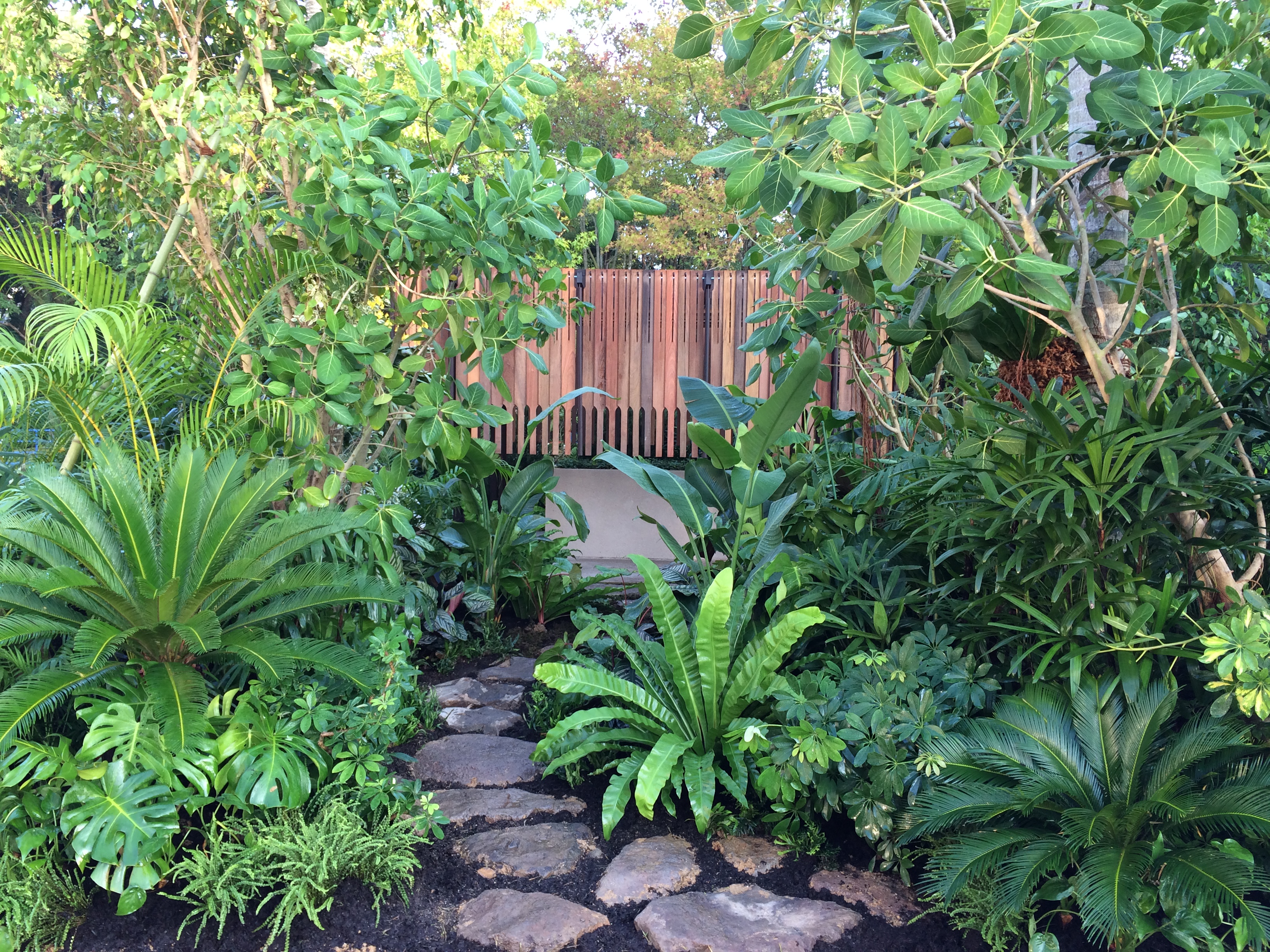
The Mimosa Shrine (2014) by Japanese Architect, Takuo Ueno, Image © Salad Dressing
Salad Dressing’s design spectrum also encompasses experimental works that raise people’s awareness of the importance of nature such as Treetop Cinema (2015) in which a temporary 20-meter-high platform was constructed to overlook the rainforest of Borneo near Malaysia’s Sandakan. The view from the top grants one access to the indefinite greatness of lives. It’s not very often that such thing is noticed and realized from this point of view. At night, the space hosts screening sessions of a movie named Sandakan written by an Italian writer who has never visited the area before, which revolves around the story of a local pirate hero. The film reintroduces the forest to the locals through the tale it inspires with an experimental attempt that the studio views as an imaginative encounter between two cultures.
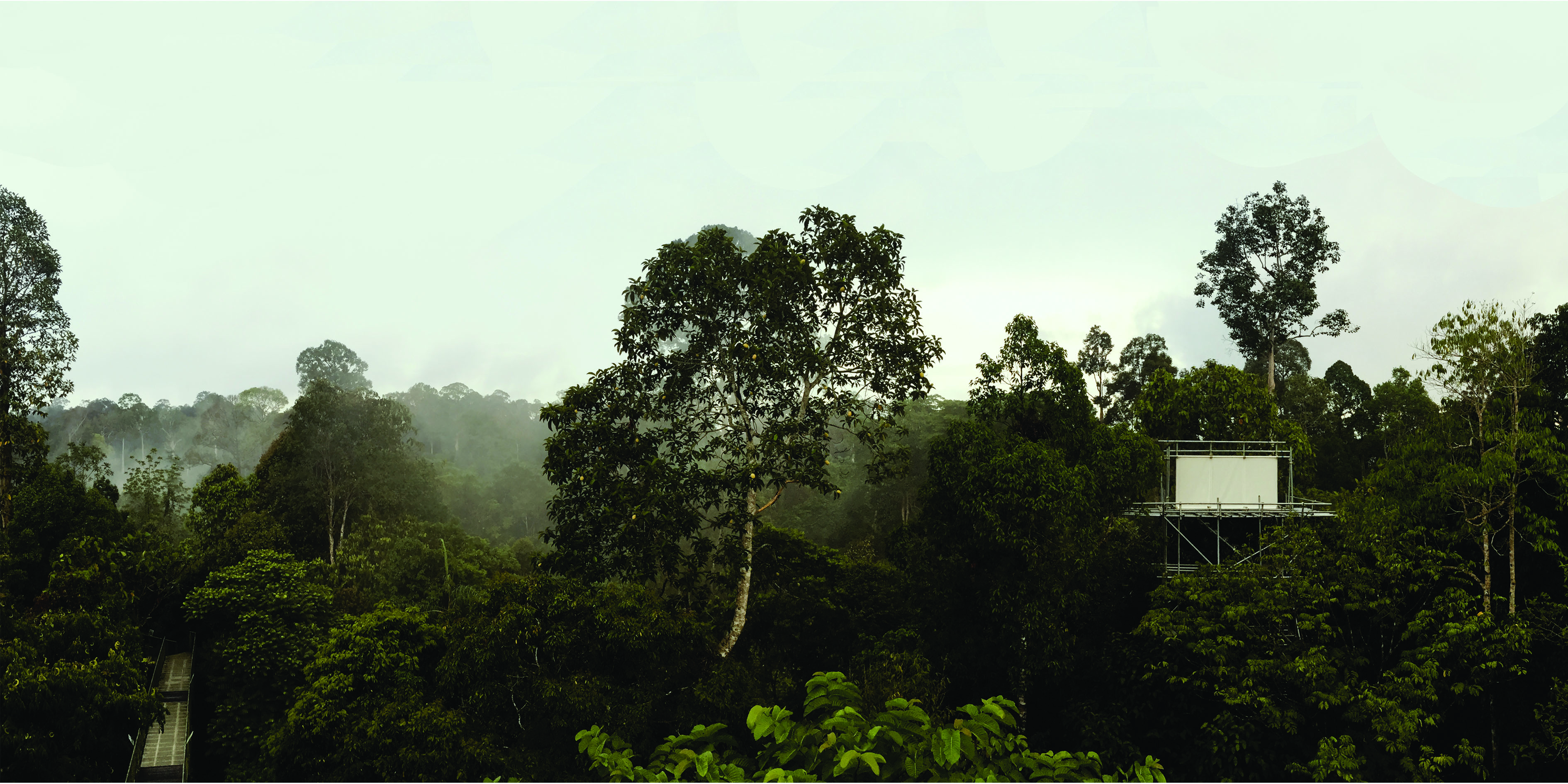
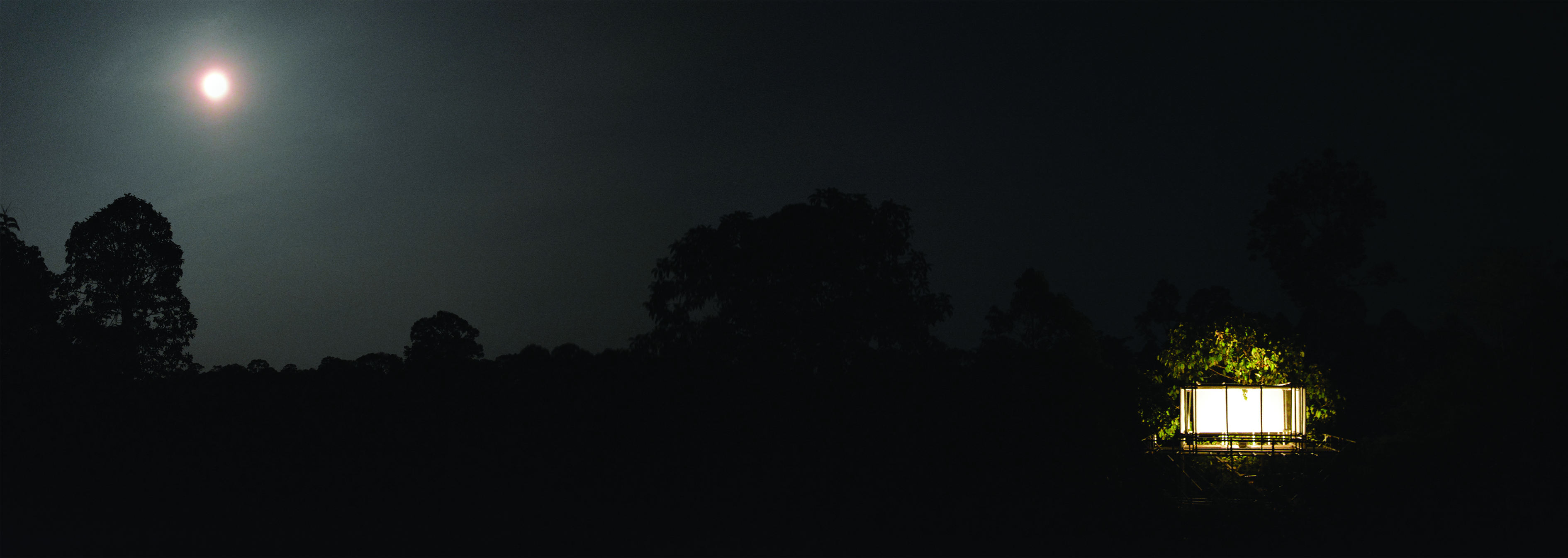
Treetop Cinema (2015), Image © Salad Dressing
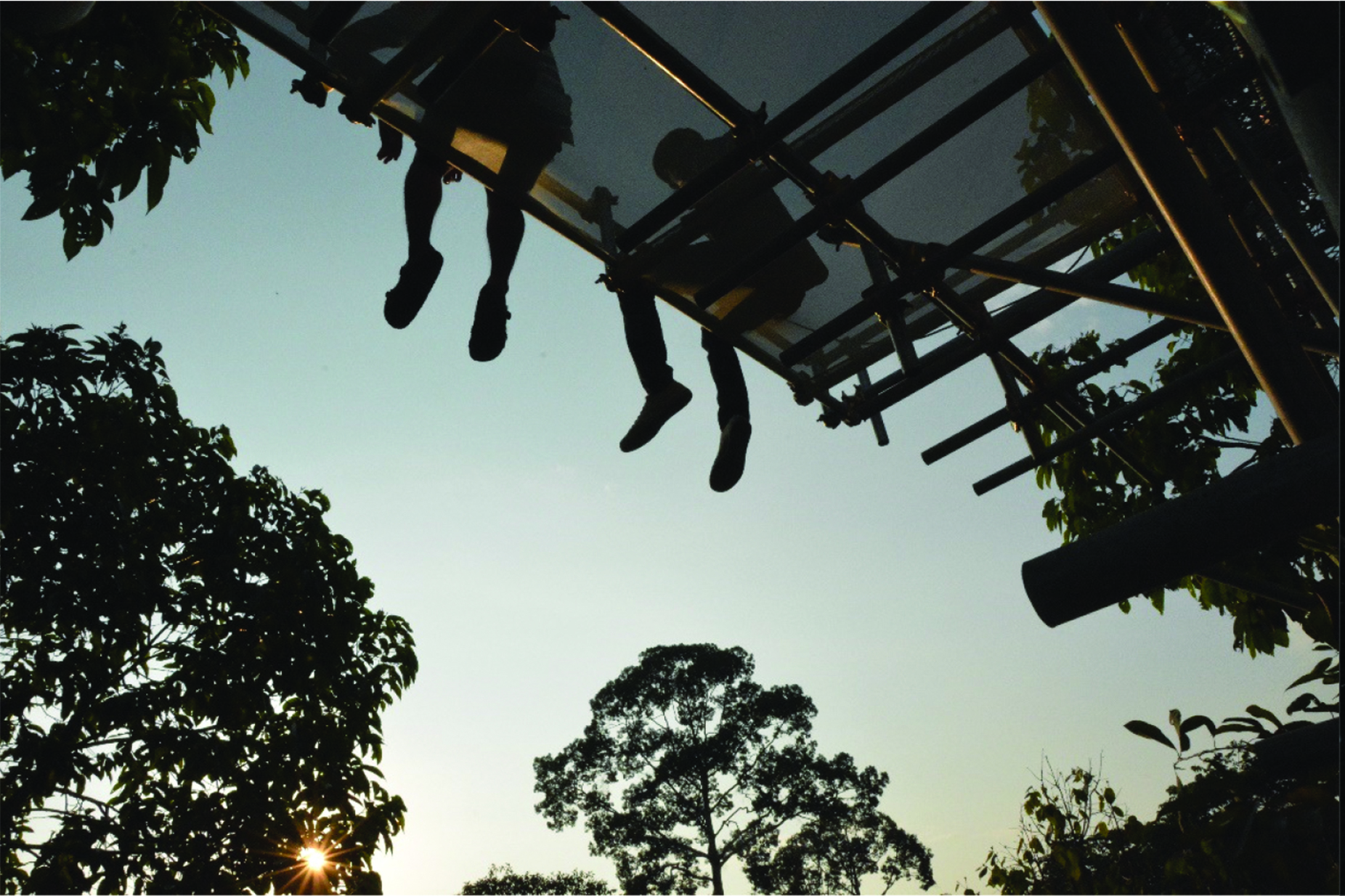
Treetop Cinema (2015), Image © Salad Dressing
The studio’s work process in each project often begins with the study and understanding of the climatic conditions of an area. The team members always actively discuss the definitions of nature and types of trees they like and the practicality of using them in the actual space of a project. An approach is employed to bring about the beauty of the greenery in the way that most satisfies the users while cultural and historical elements are also incorporated in as a part of their landscape vision.
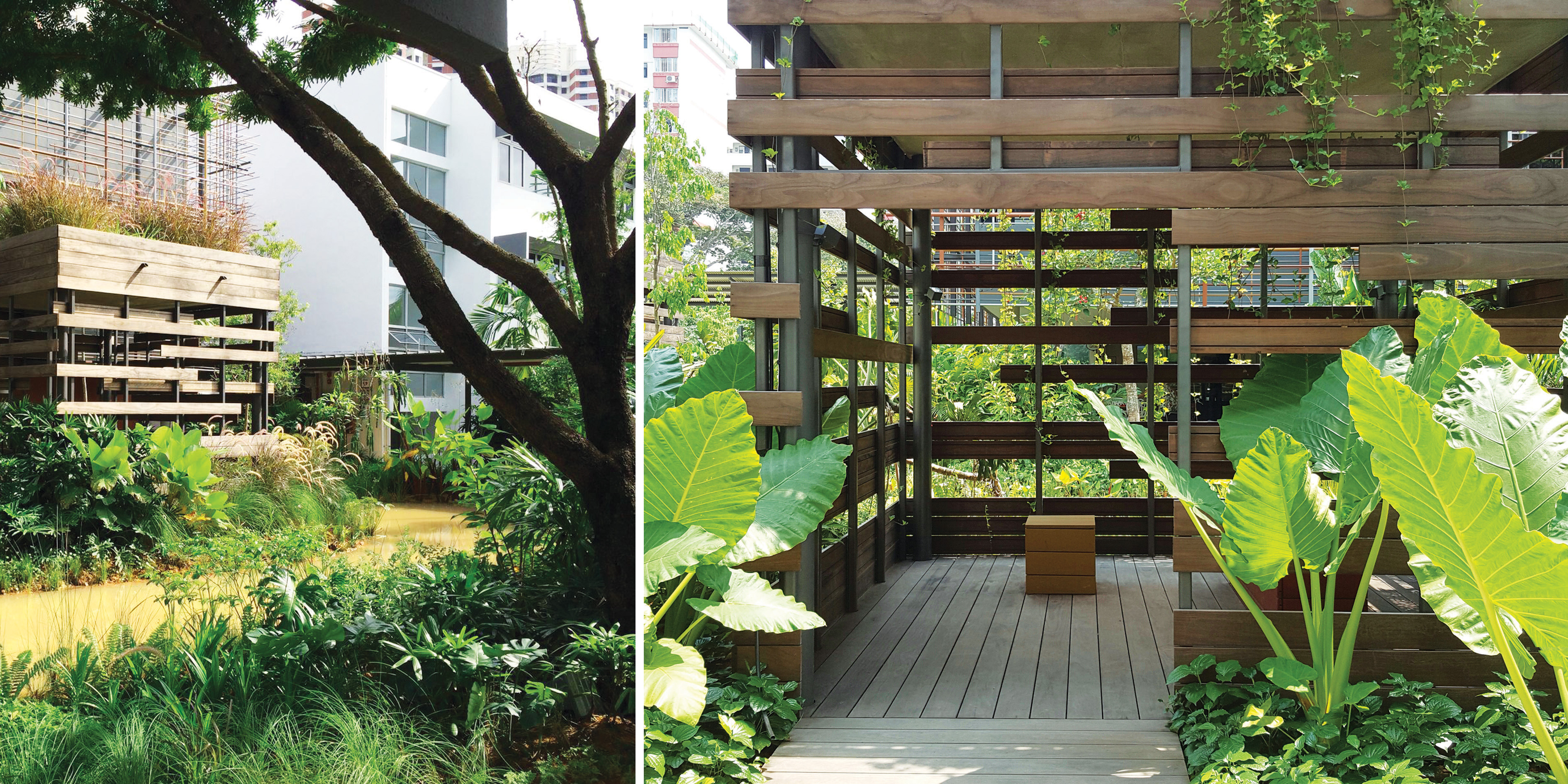
SG Enabling Village (2016), Image © Salad Dressing

SG Enabling Village (2016), Image © Salad Dressing
Working in different Asian countries, what Salad Dressing has come to know and realize is the differences of the mindsets of local people, as well as materials, construction costs, quality and characteristics of craftsmanship developed and nurtured by each area and community. But what the studio has discovered in general is the connection people have with the space and vegetation within the locality including the desire to protect the nature, not only as a physical environment that surrounds them but also something that has been a significant part of their lives.
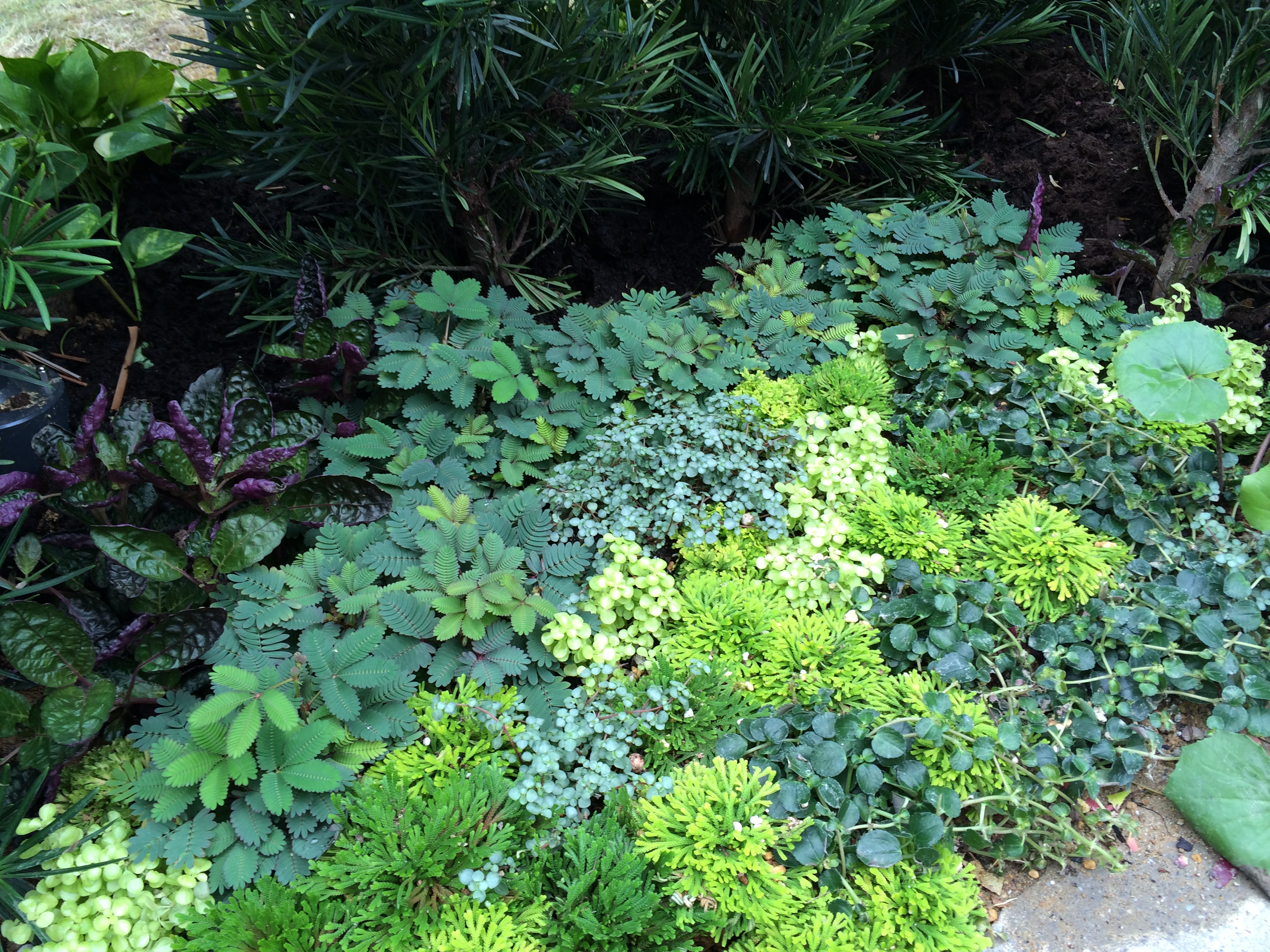
The Mimosa Shrine (2014) by Japanese Architect, Takuo Ueno, Image © Salad Dressing

Image © Salad Dressing
TEXT: WICHIT HORYINGSAWAD
www.saladlandscape.com

